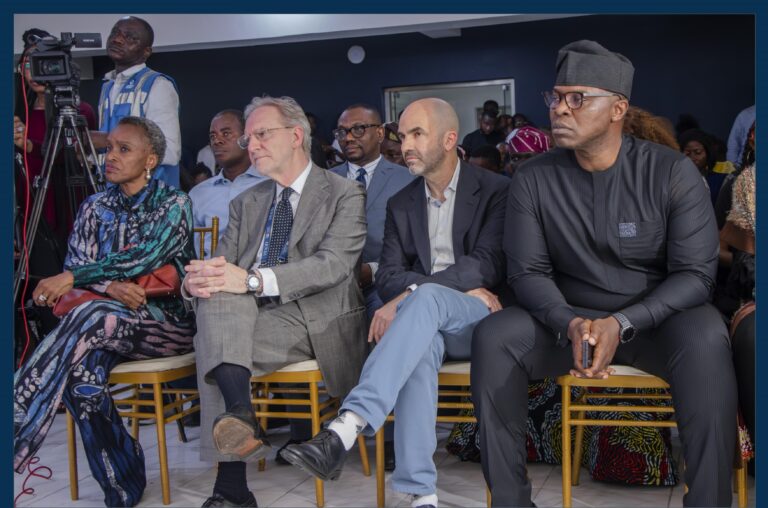Miva Open University, a pioneering institution in digital education, has launched its flagship study centre in Lagos, aiming to leverage artificial intelligence (AI) to help close Nigeria’s wide university admission gap.
According to the university, the future of accessible, high-quality tertiary education lies in tech-powered learning, as over 900,000 qualified students are denied admission annually due to capacity limitations at conventional institutions in Nigeria.
Speaking at the launch on Tuesday, the chancellor of the university, Sim Shagaya, explained that the institution is deploying a blended learning model as a perfect response to the urgent need for smart learning for all without pedestrian limitations.
According to him, blended or hybrid learning, is an approach to education that combines online educational materials and opportunities for online interaction with traditional place-based classroom methods.
Quoting data from the Joint Admissions and Matriculation Board (JAMB), he noted that more than two million candidates sit its entrance examination into tertiary institutions every year.
“In the last Unified Tertiary Matriculation Examination, 2.02 million Nigerians sat the exams. Typically, about 1.5 million qualify for university admission. But there were fewer than 600,000 available slots. That leaves roughly 900,000 qualified students without access to higher education every year,” Mr Shagaya said.
To bridge the gap using emerging technology, the chancellor who is also the Group Chief Executive Officer (CEO) of uLesson, said Miva’s strategy is centred on an AI-powered teaching engine called ‘Mind’.
This platform, he said, offers a personalised learning experience designed to replicate and potentially exceed the quality of traditional classroom teaching.
“With this backdrop, Mind aims to scale education delivery without compromising quality. The AI adapts to each student’s learning style, tracks progress, and creates a tailored educational journey. It’s like having millions of personalised teachers. Human faculty are still present, but the AI enables quality at scale, and at a lower cost,” he explained.
Physical hubs for digital university
While Miva is fundamentally a tech-driven Open University, it integrates physical touch points, a blended learning model combining digital delivery with real-world infrastructure.
According to the vice chancellor of Miva, Tayo Arulogun, a professor, the hybrid approach addresses both cultural expectations and infrastructural realities in Nigeria. He stated that the institution is providing physical centres where students can interact, access electricity, internet, laboratories, and other support systems.
“The National Universities Commission (NUC) recommends blended learning, not just online. So, we are providing physical centres where students can interact, access electricity, internet, labs, and other support systems,” Mr Arulogun said.
While he described deployment of blended learning as the first of its kind in Africa, he said the newly opened Lagos study centre is the first of many planned for major Nigerian cities, with more compact community centres slated for all the 774 local government areas across the country.
“Miva university aims to dispel the perception that Open university learning lacks real-world application by ensuring that students get hands-on learning, with facilities like computer-based testing (CBT) centres and virtual labs.
“We want students to get an experience close to what they would in a conventional university such as laboratories, physical libraries, and face-to-face interaction with faculty,” the VC added.
Ambitious enrolment targets
Since securing its NUC license in May 2023, enrolment has grown from over 500 students in its first cohort to more than 5,000 by the end of 2024.
According to the Chief People Officer, Oladipo Olugbemi, projections indicate that student enrolment will exceed 17,000 by the end of 2025, with a target of surpassing 100,000 by 2027.
“Our goal is to eventually enrol one million students within a decade. This is achievable with technology and our scalable model,” Mr Olugbemi said.
While he assured that affordability remains a cornerstone of Miva’s approach, he disclosed that all courses including new additions such as Master’s in Public Health and Information Technology are approved by the NUC.


